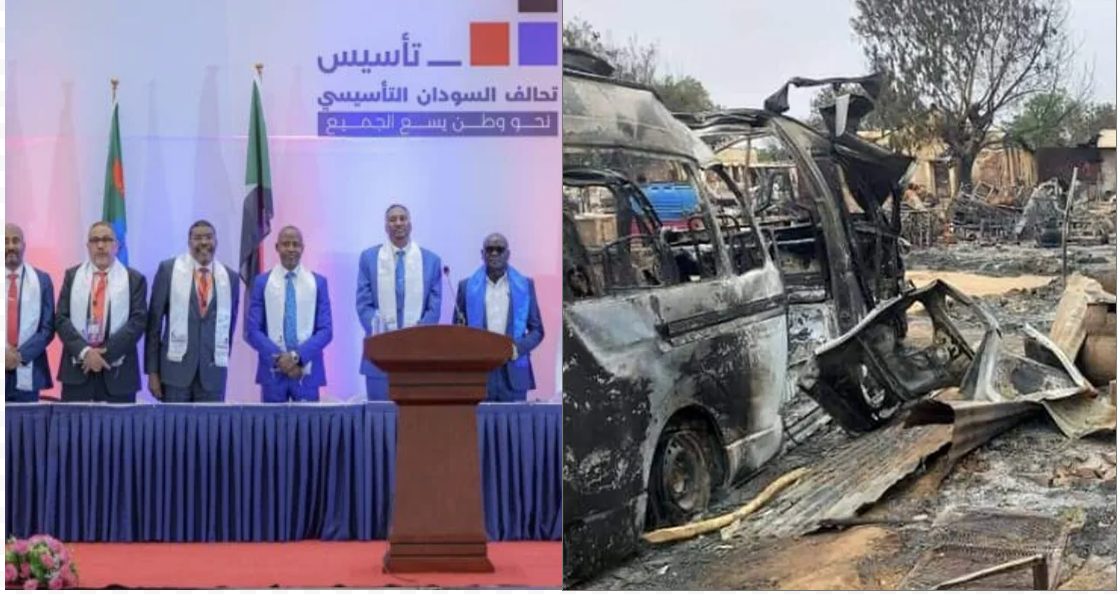Radical Clerics in the Firing Line
Radical Clerics in the Firing Line
The mujahideen in Iraq continue to demonstrate a high degree of sensitivity to the pronouncements of religious clerics on the propriety of jihadist violence. The most conspicuous example of this came in the surprising announcement by Abu Mus’ab al-Zarqawi, published November 5 on an Islamist forum (www.almjlah.com), that “if these [kidnappers of Irish aid worker Margaret Hasan] handed us this captive, we will set her free immediately unless it is established that she was conspiring against Muslims.” In a video delivered to al-Jazeera TV, Mrs. Hasan’s kidnappers had threatened to hand her over to al-Zarqawi if the British government failed to withdraw its troops from Iraq. This statement on the forum was immediately accompanied by strenuous protests of the group’s strict adherence to religious laws, and that its members were “not enamored of war and destruction, nor of blood flowing on the ground.” It is clear that al-Zarqawi’s group has had to develop sensitivity to public opinion, but the more operative influence will have come from declarations by radical Muslim clerics, such as that issued by Abu Basir al-Tartusi on October 24, outlining her protected status as the wife of an Iraqi Muslim, and issuing threats of dire consequences for the contravention of Islamic law (www.altartousi.com).
The directness of the influence of clerics was also the subject of an unusual intervention on October 24 by a group of Arab liberal intellectuals, a class that has thus far shied away from confronting religious authority. These addressed a manifesto to the UN in reaction to some notorious fatwas issued by Sheikh Yusuf al-Qaradhawi which had permitted the killing of unborn Jews (on the grounds that they would grow up to join the Israeli army), the killing of Muslim intellectuals as being apostates, or most recently the killing of all American civilians working in Iraq. The statement, authored by Dr. Shaker al-Nabulsi, al-Afif al-Akhdar and Dr. Jawad Hashim, aimed to draw attention “to an extremely dangerous source of terrorism…the purported religious pronouncements, fatwas, issued by some psychotic members of dogmatic Muslims encouraging the commission of terrorist acts in the name of and under the banner of Islam.” They excerpted the fatwas of a number of Saudi clerics, including that of Sheikhs Ali al-Khodhari and Safar al-Hawali (one of the 26 clerics signatory to the November 6 statement above), which lauded the 9/11 attacks, and went on to call for the U.N. to establish an international tribunal which would not only prosecute terrorists but also “people and institutions, primarily religious clerics, that incite terrorism” (www.metransparent.com).
As if designed to illustrate the liberals’ case, on November 6 an open letter to the Iraqi people – signed by 26 Saudi religious scholars – called for stepping up the military activity against the occupiers, affirmed the legitimacy of the resistance, and banned any form of cooperation with the occupying forces. The letter was posted on the Internet and circulated on jihadist forums. It laid out their authorization to resist in the form of a 10-point treatise and included the following salient points: 3) “there is no doubt that jihad on the occupiers is obligatory upon those who are able”; 4) “no Muslim is to cause harm to any member of the resistance…but must support and protect them”; 5) “it is forbidden to any Muslim to extend support or aid to military operations carried out by the occupying soldiers”; 6) “one of the established points of Shari’ah is to protect the blood of Muslims, their property and honor”; 7) “it is one of the patent interests of Islam and of the Muslims in Iraq and across the world not to target the oppressed or those not part of the struggle, or those whose home countries are not participating in the military campaign”; 10) “we recommend that … people refrain from issuing confusing fatwas that will stir up trouble.” (www.alokab.com/forums/index.php?showtopic=12522)
For all its efforts at a measured, conciliatory tone the statement stirred up some sharp controversy. One of the more outspoken commentaries came from former Kuwaiti minister and liberal commentator Ahmad al-Rab’i writing on November 8 in the Saudi daily al-Sharq al-Awsat. “We think it is the duty of the preachers,” he wrote, “to call upon people to join the peaceful process, and it is their obligation not to cause Iraq’s Sunni regions to be isolated from political life through their taking a negative attitude towards the elections and the government, so that they find themselves a marginalized minority”
(www.asharqalawsat.com/default.asp?issue=947).
There were also some dissenting voices among Saudi clerical circles. Sheikh Abd al-Muhsin al-Abikan, in a November 7 article for al-Sharq al-Awsat, had blamed much of the chaos in Iraq on fatwas such as these “which are devoid of textual authority”. Instead he insisted that Jihad in Iraq and Palestine was not lawful due to the lack of an imam to legitimize it. This reflected last year’s position of senior clerics in Saudi Arabia who had issued a statement saying the call for jihad should only come from the ruler and not be based on edicts issued by individual clergymen (www.asharqalawsat.com/264374). To this an al-Qaeda commentator responded aggressively, dubbing al-Abikan “the Mufti of the Americans” and writing off al-Sharq al-Awsat as “the pulpit of secularism and westernization in the country” (Mu’askar al-Battar, Issue 22, p.38). Comments such as that on the al-Islah forum, calling for “a purifier to cut out the tongue of al-Abikan” and that “he should be stoned to death” were also typical and demonstrate the threat felt by his remarks (www.yaislah.org).
However, Jihadist clerical wrath also focused on the position taken by the Iraqi Shi’a leader Ayatollah al-Sistani, who issued a fatwa casting into Hell those who refuse to participate in the elections. The Islamist forum Mufakkirat al-Islam published a statement on November 8 issued by Sunni clerics in Fallujah warning al-Sistani not to ignite a Sunni-Shi’a civil war, “through his followers joining the ranks of the Iraqi National Guard who are aiding the occupiers against the resistance” (85 percent of the National Guard in Fallujah are Shiites) (www.islammemo.cc). Sheikh Mahdi al-Samida’i of the Ibn Taymiyya mosque in Baghdad took up the issue two days later in a “Declaration on the Obligation to Aid the People of Fallujah with All Means Possible”, again posted on an Islamist website. In this he sought to “reveal the truth of the positions taken by the hypocrites, such as al-Sistani who only stirs himself to come to the rescue of the occupiers in their crisis.” (www.almjlah.com).
The issue of religious support for violence is interesting since it highlights just how far the reach of extremist clerical influence in Saudi Arabia has actually been reined back. This issue will likely gain momentum as the spotlight on the phenomenon of religious incitement to acts of violence looks set to intensify.


